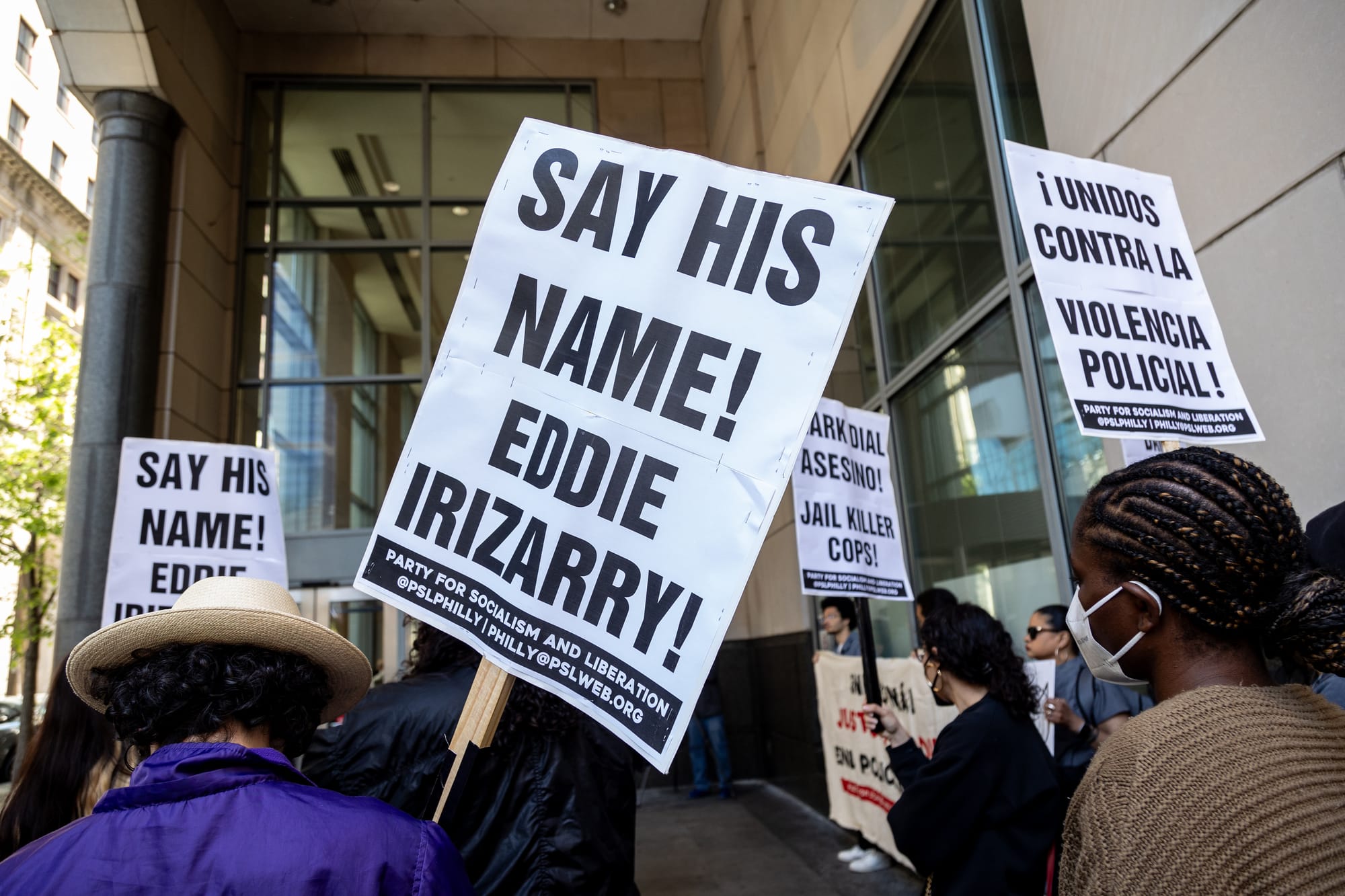Jayme Walker has experienced neglect inside Philadelphia’s jails.
“You can bang on the door for hours, and nobody will answer,” said Walker, who was incarcerated inside the Philadelphia Industrial Correctional Center and the Curran-Fromhold Correctional Facility in 2018.
Walker said he witnessed other people incarcerated there calling for medical attention and getting ignored.
“The [correctional officer] will come look in the cell, walk away, and say, ‘You're faking,’” Walker said. “The conditions are terrible there, and we definitely need to make some changes.”
Walker testified in City Hall last week in support of a resolution from City Councilmember Kendra Brooks. The resolution condemns the Supreme Court’s decision to allow the criminalization of homelessness in Grants Pass v. Johnson and reaffirms the city’s commitment to “housing as a human right.”
Walker grew up in Roxborough with Amanda Cahill, who died in a Philly jail cell following a Kensington police sweep targeting narcotics offenses and warrants earlier this month.
“Amanda's death shows that we need to change how we deal with addiction and mental health, and we should provide stable housing, medical care, and support services,” Walker said. “Housing is a basic human right, and it's the first step to helping people recover and get back on their feet.”
City Hall adopted the resolution Thursday.
The resolution argues that the most long-term and cost-effective solutions to issues related to homelessness are “deeply affordable housing and placing people in long-term supportive housing environments.”
It also argues that addiction should be mitigated through housing, and public health infrastructure and investments, not incarceration.
“Disappearing people does not help our communities,” the resolution reads.
Cahill’s cousin, Kayden Hujack, testified in favor of Brooks’ resolution. They advocated for “adequate services,” including syringe exchange programs, shelters, treatment centers, and harm reduction care, rather than “throwing [people] in an institution to be abused, neglected, and in some cases, have their lives taken.”
Hujack criticized Parker’s police-centered strategy to address drug use and homelessness.
“It is apparent with these types of reactionary beliefs at play, that the city officials do not consider homeless people, people below the poverty line, or substance abusers, as actual humans and are indeed to them, disposable,” Hujack said.
Eric Tars, senior policy director of the National Homelessness Law Center, also testified in support of Brooks’ bill.
“Throwing homeless people in jail or fining them makes homelessness worse,” Tars said. He urged City Council to “focus on housing, not handcuffs; services, not sweeps.”
‘A duty to keep our incarcerated populations safe’
Council members Isaiah Thomas and Nicolas O’Rourke also proposed a bill to create a Prison Community Oversight Board and an Office of Prison Oversight. The Office of Prison Oversight would be within the Office of Public Safety and would amend Philadelphia’s Home Rule Charter, which is like the city’s constitution.
The board’s and the office’s stated goals are to increase transparency and accountability within the city’s correctional institutions, provide recommendations upon review of Philadelphia Department of Prisons (PDP) policies and practices, access and monitor PDP facilities, databases, and documents, meet with staff and incarcerated people, and develop community education programs. The board would hold monthly public meetings.
The board would have nine members, four appointed by the mayor and five appointed by the City Council president. Per the resolution, members cannot be employed by PDP, the Philadelphia Sheriff’s Office, or the Philadelphia Police Department, and at least one member should have been previously incarcerated inside a Philadelphia prison.
In September, there were two deaths inside PDP facilities — Cahill and Michael McKinnis. Both incidents reveal evidence of neglect inside the jails. McKinnis, 61, was found unresponsive in his cell by prison staff after his unit was left unsupervised overnight, according to the Defenders Association of Philadelphia. According to multiple first-hand accounts from other women who were incarcerated near Cahill, people were banging on their cells for hours, trying to get her medical attention.
Advocates and impacted individuals have long reported inhumane conditions inside Philadelphia’s prisons. A class-action lawsuit filed in 2020 alleged "horrendous" conditions, which has led to a federal judge ordering the city to pay $25 million and address staffing shortages at the city’s jails.
“I am proud to begin this prison oversight process in the wake of multiple recent tragedies in our city-operated prisons,” Councilmember Thomas said in the press release. “We have a duty to keep our incarcerated populations safe, secure and healthy while they are under our watch, regardless of the circumstance that found them incarcerated.
“City Council must confront the crisis in our jails, our incarcerated constituents cannot fall out of sight or out of mind,” Councilmember O’Rourke said in the press release.
The Abolitionist Law Center (ALC) shared its perspective on the bill on social media over the weekend. The ALC believes the public meetings will allow a space for people to “expose ongoing human rights violations and neglect in the jails.” But the organization is concerned about who the mayor will appoint to the board.
“Expecting the mayor to appoint neutral watchdogs and advocates is naive,” ALC wrote in an Instagram post.
Still, ALC said they view the board as a useful tool, but one that residents will need to pressure in order to hold the city accountable.
“Without people power, this board will do little to change anything,” ALC wrote, “But this board will hopefully be an arena where our movement can contend for power.”
Chief Public Defender Keisha Hudson commended Thompson and O’Rourke for the legislation in a press release Thursday.
Hudson said the legislation is “a strong and crucial first step toward addressing the persistently dangerous conditions in Philly’s jails.”
She also said the Defenders Association is “hopeful that the new oversight will increase transparency, improve communication between the jails and our office, as well as between the jails and the community, and enhance safety for both incarcerated people and prison staff by reducing the jail population.”
If passed by City Council, the Home Rule Charter amendment will be on the ballot in the May 2025 elections.

Have any questions, comments, or concerns about this story? Send an email to editors@kensingtonvoice.com.





